#Dave Haywood
Text
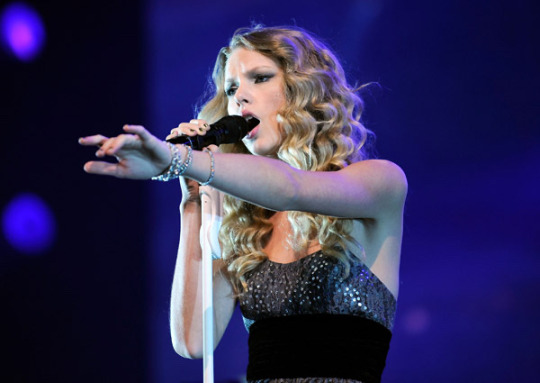
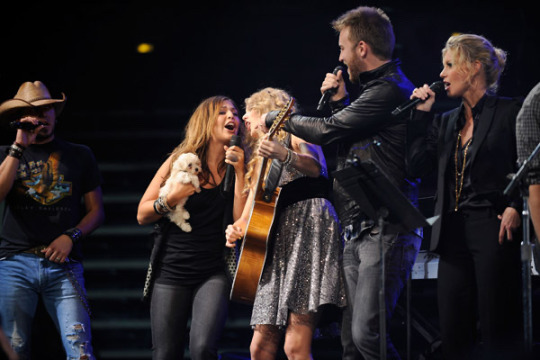


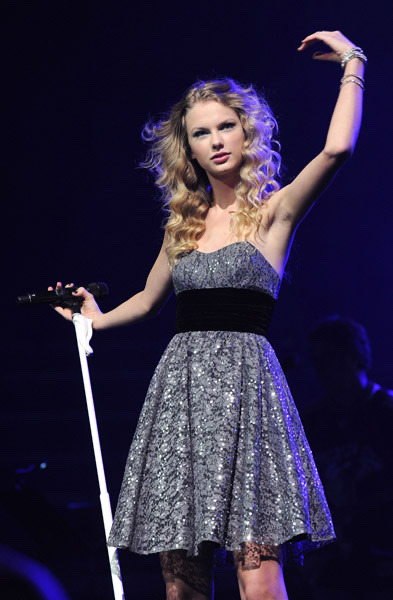
ON THIS DAY — October 13, 2009 — 14 years ago
"We're All For The Hall" benefit concert in Nashville, Tennessee
#onthisday#taylor swift#hillary scott#charles kelley#faith hill#dave haywood#tswiftedit#taylurking#2009#october 2009#events#nashville#tennessee
14 notes
·
View notes
Text

9 notes
·
View notes
Text
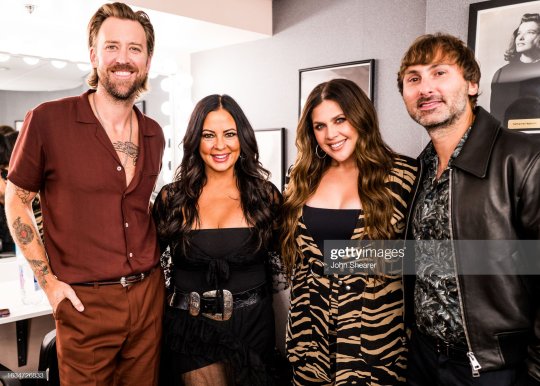

Sara Evans with 'Lady A' Charles Kelley, Hillary Scott, & Dave Haywood at the ACM Honors on August 23, 2023
#Sara Evans#Lady A#Charles Kelley#Hillary Scott#Dave Haywood#ACM Honors#August 23rd 2023#Country Music
8 notes
·
View notes
Text
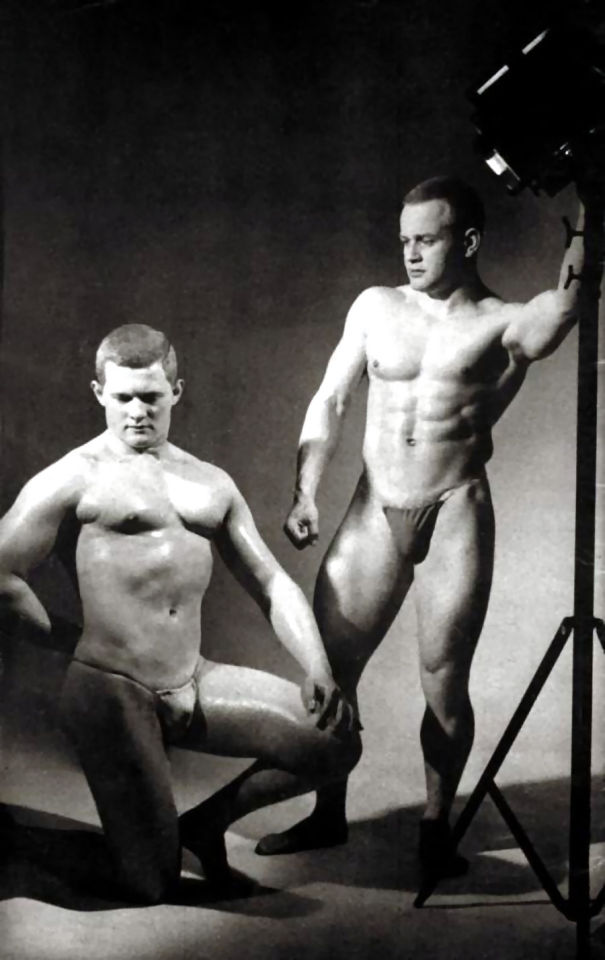
Dave Hawtin and Vic Haywood
35 notes
·
View notes
Photo
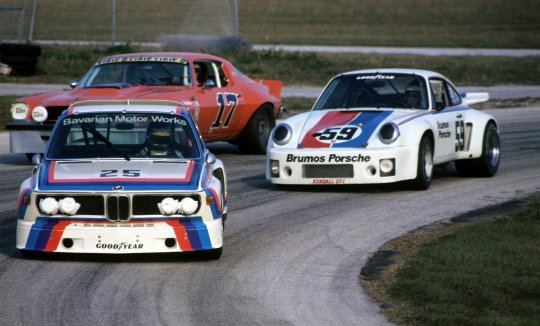
Ronnie Peterson (BMW 3.0 CSL) devant Peter Gregg 'futur vainqueur' avec Hurley Haywood (Porsche 911 Carrera RSR) et Vince Gimondo / Dave Heinz / Bert Everett (Chevrolet Camaro). 24 Heures de Daytona 1975. - source Carros e Pilotos.
#ronnie peterson#peter greg#hurley haywood#vince gimondo#dave heinz#bert everett#bmw#porsche#chevrolet#24 heures de daytona
50 notes
·
View notes
Text
its the way that starchild dave looks at hal lovingly in the confrontation with haywood and almost caresses him its the way that dave decides to choose HAL not his ACTUAL WIFE to evolve with him its the way that hal sings to dave during his final moments a song about innocent love its the way that dave is so so fucking gentle and understanding with hal in both of his deaths its the way that the explosion of jupiter can be a metaphor for their love
its the way that hal becoming a starchild is his second death but its also his resurrection its also his baptism its also his marriage its also his first time truly alive its also his first time truly dying its also daves vow to love him its also proof that he's always loved him to begin with
its the way that hal was always a starchild to begin with its the way that hal was doomed to begin with its the way that hal is dave its the way that dave is hal its the way that its self love its the way that their love is holy its the way it has something to do with queer love being all encompassing and divine
#ok im done back to laying down on my bed absolutely stricken with grief#halman#2001 aso#2001 a space odyssey#2010 the year we make contact#2010 tywmc#dave bowman#hal9000#a space odyssey
251 notes
·
View notes
Text
Had to leave 2001: A Space Odyssey in the final ten minutes because I was literally getting muscle cramps from having to plug my ears for the monolith music.
I'd been trying to get through to the end because I knew the movie was nearly over, but when there was a brief pause, and then the music started again, I tagged out.
Let me say this before I say anything else: This movie is a masterpiece of the highest order.
But also, I get why 16-year-old me was fucking BORED, and I get how someone watching it as an adult could be fucking BORED. Because I was sitting there going, "Okay, this has all been very nice to look at, but I feel like I'm on film number 3 with HAL here, and I know where THIS part goes, but I'm gonna need a thru-thread to justify this fucking thing."
And then the thru-thread happened.
And holy shit.
My only recollection of watching this movie back when I was 16 (I remind you, I am 41) is some very well-known shots of Dave and Hal, and also many recreations of The Dawn of Man sequence in various pop culture ways (the Barbie movie being the latest in a long line).
I think it's especially impressive, watching it now, how little screentime HAL actually has and how I felt so bad about what happened to him. A computer, built by men, is possibly fallible one time. And so two humans decide they'll need to take away his intelligence because it's a life or death situation. Even the human who seems to see HAL as a possible sentient intelligence doesn't try to talk to him about his concern. When it comes down to it, the two humans decide to harm the computer that's kept them alive so far, may have (only MAY HAVE) made one minor mistake, and has tried to be friendly with them (HAL wanting to see Dave's drawings kicked me in the ribs).
And then, when you see Haywood's recording to explain why they're going to Jupiter after Dave has brought HAL off-line so deeply that it triggers as a last-ditch effort explanation to the astronauts in case HAL has failed but the ship is still usable, you realize HAL was trying to give Dave a hint about the secret he was being forced to keep when he asked Dave if he'd noticed how ODD the security around their journey was.
But also, HAL--upon realizing the astronauts plan to harm him--immediately seeks violence. But that also reflects the Dawn of Man era where we see the first tool use being to smash bones. HAL is as human as the first human to pick up a bone and smash it down.
And what saves man is the use of simple tools a computer program can't replicate or control.
#2001: a space odyssey#classic film#movies with a soundtrack that make me go panicky#i will be able to watch it at home because i can control the volume#but that's a big no to any other theater experience
21 notes
·
View notes
Photo
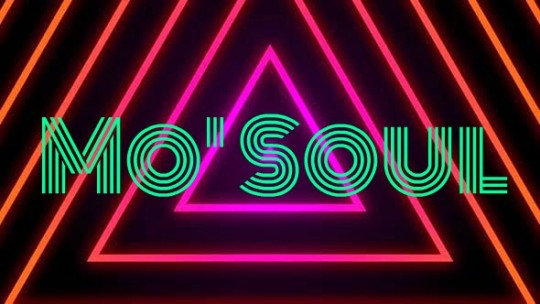
"Mo Soul" Player Playlist 30 January
1. Diamond Ortiz - You Blew It
2. Adesha & Vincent Kwok - Just Groove
3. Michael Wycoff - Looking Up To You (P's Illusions Edit)
4. Tuxedo - You & Me
5. Julian Jonah Feat.Tamika - Now’s The Time For Us
6. David LC Thomas - See Again
7. Wez - Keepin' Love New (Club Mix)
8. Keni Burke - So Real
9. Cool Million Feat. Westcoast Soulstars - We Can Work It Out
10. Dabeull Feat. Holybrune - Glitter Fonk
11. Magoo - Have Fun
12. Cool Million & Heather Haywood - Moonlit Rendezvous
13. Chemise - She Can't Love You
14. Angie Stone - Pissed Off
15. Dave & Omar - Starlight
If you really want to enjoy music and help musicians and bands, buy their lp’s or cd’s and don’t download mp3 formats. There is nothing like good quality sound!!!
(Angel Lo Verde / Mo Soul)
#mo soul#playlist#music#soul#blues#funk#jazz#lounge#reggae#rock#fusion#house#r&B#afro funk#disco funk#acid jazz#nu jazz
2 notes
·
View notes
Text
One thing that bothers me about The Space Odyssey quartet books is that there's very stop-and-go emotional continuity with regard to the characters. From a modern reader's perspective, the characters seem almost incidental to the plot. Granted, this also can be explained as the difference in character-driven narratives versus plot-driven narratives.
So then, acknowledging that, I had to look at the story from the author's perspective, considering the novel series as a whole. In doing so, I was able to reconsider my irritation with the perception I have of the lack of emotional continuity within the story. The main character in The Space Odyssey quartet is not Haywood Floyd, nor is it Hal, Frank, or even Dave.
The main character in The Space Odyssey quartet is space itself and the exploration thereof.
#own post#2001 a space odyssey#2010 the year we make contact#2061 the third odyssey#3001 the final odyssey#analysis
4 notes
·
View notes
Text
Cover versions
Fifteen cover versions of famous songs.

El Amor Eres Tu - Maggie Carlés Y Luis Nodal Y Los Magnéticos (Maggie Carlés Y Luis Nodal Y Los Magnéticos, 1976). Cover of Heaven Must Be Missing an Angel, the 1976 discosong by Tavares
At Last - Jimmy Bee (Funky Way / At Last, 1971). This song was written by Mack Gordon and Harry Warren for the musical film Sun Valley Serenade (1941). Glenn Miller and his orchestra recorded the tune several times, with a 1942 version reaching number 2 on the US Billboard pop music chart. In 1960, rhythm and blues singer Etta James recorded the track.
Draw Your Breaks - Herbie Mann (Surprises, 1976) Cover of the 1965 ska song Stop That Train by The Spanishtonians. The Jamaican reggae duo Clint Eastwood & General Saint also recorded a cover version of Stop That Train in 1983.
Get Ready - King Curtis (Get Ready, 1970) Instrumental cover version of the 1966 hitsong by The Temptations.
Hold On, I'm Coming (Hold On God's Coming) - Mildred Clark and The Melody-Aires (God's Got Everything You Need, 1979) Cover of 1966 single by soul duo Sam & Dave
I Feel The Earth Move - Ruth Brown (The Real Ruth Brown, 1972) Classic by Carole King.
I Feel Good (Something About King Jesus) - The Williams Brothers (First Class Gospel, 1979) original by Al Green
Ode To Billy Joe - Part I & II - Leon Haywood (It's Got To Be Mellow, 1967). Cover of Bobbie Gentry's debut single.
Put A Little Love In Your Heart - The Voices Of Heaven Choir (Love, 1972) Cover by the hitsong written by Jackie de Shannon.
Rhythm Talk - Jocko (Rhythm Talk / Ain't No Stoppin' Us Now (Instrumental) 1979) rap cover of McFadden & Whitehead's Ain't No Stoppin' Us Now from 1978.
Sono Un Uomo (I'm A Man) - Patrick Samson Set (Io E Il Tempo / Sono Un Uomo (I'm A Man), 1967). Made famous by The Spencer Davis Group in 1967.
Think - Harold Johnson Sextet (Think / Sorry 'Bout That, 1968) Cover of Aretha Franklins hitsong.
Up Above My Head - The Rance Allen Group (The Rance Allen Group, 1971). Cover of Sister Rosetta Tharpe's classic.
You Can't Always Get What You Want - Invaders (There's A Light There's A Way, 1971) Cover of The Rolling Stones classic.
You've Got A Friend - Michael Jackson (Got To Be There, 1972). Cover of Carole King's hitsong.
More Soul Music Lists
Cover versions
Unusual Cover Versions Of Famous Soul Songs
Unusual cover versions of famous songs
Originals that were less famous than their cover version
2 notes
·
View notes
Text
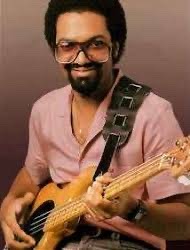
Louis Johnson (April 13, 1955 – May 21, 2015) was a bass guitarist. He was known for his work with the group the Brothers Johnson and his session playing on several hit albums of the 1970s and 1980s, including the best-selling album of all time, Thriller.
His signature sound came from the Music Man StingRay bass guitar. He is ranked #38 on Bass Player magazine’s list of “the 100 Greatest Bass Players of All Time”.
His work appears on many well-known records by prominent artists. He played on Off the Wall and Dangerous, and hit songs “Billie Jean” and “Don’t Stop ‘Til You Get Enough”. He played on Give Me the Night. He was one of three bassists on the album Rise, which included its top-10, Grammy-winning disco/jazz title track. He was nicknamed “Thunder-Thumbs”.
His slap bass lines figure in his work on the Time Exposure album, his work with Grover Washington, Jr. (Hydra), George Duke (Guardian of the Light, Thief in the Night), Jeffrey Osborne (Jeffrey Osborne, and Stay with Me Tonight). The bass line for Michael McDonald’s “I Keep Forgettin’ (Every Time You’re Near)” has been sampled as a backing track for dozens of rap songs. He was the bassist on Earl Klugh’s jazz/pop album Living Inside Your Love and jazz/pop album Finger Paintings, as well as Quincy Jones’ Mellow Madness.
Johnson worked with Andrae Crouch, Angela Bofill, Anita Baker, Aretha Franklin, Billy Preston, Bill Withers, Björk, the Controllers, the Crusaders, Dave Grusin, David Diggs, Deniece Williams, Donna Summer, Donn Thomas, Gábor Szabó, Gene Van Buren, Harvey Mason, Herbie Hancock, Hiroshima, Irene Cara, the Jacksons, James Ingram, John Mellencamp, Karen Carpenter, Kent Jordan, Kenny Loggins, Lee Ritenour, Leon Haywood, Lesley Gore, Makoto Izumitani, Natalie Cole, Patti Austin, Paul McCartney, Peabo Bryson, Peggy Lee, Phil Collins, Pointer Sisters, Randy Badazz, Rene & Angela, the Ritz, Rufus, Sérgio Mendes, Side Effect, Sister Sledge, Stevie Nicks, Stevie Wonder, Sweet Comfort Band, Temptations, George Duke, Toshiki Kadomatsu and The Supremes. #africanhistory365 #africanexcellence
0 notes
Text

2 notes
·
View notes
Text
Monday, April 1, 2024: 1pm ET: Feature Artist: Lady A
Lady A, known until 2020 as Lady Antebellum, is an American country music group formed in Nashville, Tennessee, in 2006. The group is composed of Hillary Scott (lead and background vocals), Charles Kelley (lead and background vocals, guitar), and Dave Haywood (background vocals, guitar, piano, mandolin). Scott is the daughter of country music singer Linda Davis, and Kelley is the brother of pop…
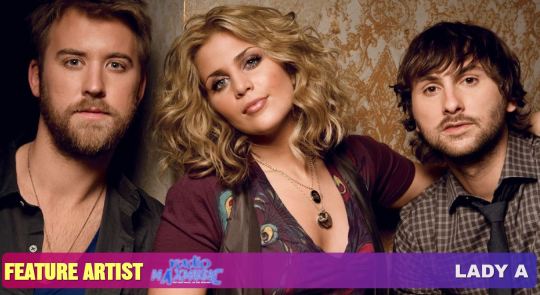
View On WordPress
0 notes
Text
New Jersey Nets and Detroit Pistons Swap Porter and Money

On September 8th, 1978, the Detroit Pistons traded guard Eric Money to the New Jersey Nets for guard Kevin Porter.
Not many NBA players get the homecoming experience right away. Guard Eric Money was the exception. Money was from the local area, starring at Detroit Kettering High School.
A two-year player at the University of Arizona, Money was a rare underclassmen and just 19 years old when the Detroit Pistons selected him 33rd overall in the second round of the 1974 NBA Draft.
After being drafted, Money signed a two-year deal for what was believed to be worth $50,000 annually. Standing six-feet tall, Money was a slick guard with a knack for scoring from midrange. He joined as a backup at guard to a team built around star big man Bob Lanier and five-time All-Star point guard Dave Bing.
There was significant excitement around Money as a prospect because of his youth and scoring ability. There was also an expectation that he would be Bing's successor.
Detroit began the 1974-75 season 10-7 after 17 games and 13-10 after 23. The club reached a 31-21 record after a 15-4 stretch. The Pistons were second in the West, but a 9-21 run to end the season left the club 40-42 and fifth in the conference standings. Money had a bit role with the Pistons in his rookie season, appearing in 66 games, compiling 4.8 PPG, 1.3 RPG, 1.5 APG and 0.5 SPG in 13.5 MPG.
The Pistons advanced to the first round where they matched up with the Seattle SuperSonics. In the series opener, Sonics forward Spencer Haywood led the way with 22 points, 14 boards and five assists as Seattle won 90-77. In the second game, three Pistons scored 20 points and Detroit won comfortably 122-106.
Seattle took a 15-point lead at halftime in the rubber game and behind 26 points from Tom Burleson, held on for a 100-93 victory. Money did not play in the postseason for Detroit. He missed time due to a twisted ankle suffered in practice.
After the season, the Pistons moved on from Bing, dealing the star guard after a contentious contract holdout from the previous year. He was sent to the Washington Bullets with a first round pick for point guard Kevin Porter. In addition to Porter, the Pistons added guard Archie Clark in a trade with the SuperSonics.
Porter became the starter at point guard and Money was his backup for the 1975-76 season. Detroit began the year 11-6. However, the club lost 17 of its next 21 games. At 17-25, head coach Ray Scott was fired and replaced by assistant coach Herb Brown.
After 69 games, the Pistons were 26-43 and half a game out of fifth place in the West. Detroit saved its best for last, winning 10 of the final 13 games to finish 36-46 and fifth. The record was good enough to get them into the playoffs.
Money saw a significant boost in playing time during his second pro season partially because Porter only played 19 games due of right knee surgery. The six-foot guard played in 80 games and amassed 13.0 PPG, 2.6 RPG, 4.2 APG and 1.7 SPG in 28.3 MPG.
The Pistons advanced to the postseason as the fifth qualifying team despite having the sixth-best record in the West. They went on to a series in the opening round with the fourth-seeded Milwaukee Bucks. The first game saw Bucks rookie Gary Brokaw drop 36 points in a 110-107 Milwaukee victory. Detroit center Bob Lanier had 35 points in a 126-123 Pistons victory.
In the third and final game of the series, Pistons guard Chris Ford had a key steal with 18 seconds left and Lanier made two free-throws with 13 seconds left as the Pistons held on for a 107-104 win. During the three-game series, Money recorded 14.0 PPG on 46.3% from the field, 2.0 RPG, 4.7 APG and 2.3 SPG in 27.7 MPG.
Detroit moved on to the Conference Semifinals where they faced the Golden State Warriors. Guard Phil Smith had 26 points to lead the way in a 127-103 Warriors Game One blowout win.
Curtis Rowe and Lanier combined for 64 points in a 123-111 Pistons victory. With the series tied 1-1, Smith put up 34 points in a 113-96 Warriors victory.
In Game Four, the Pistons built a 16-point lead going into the fourth quarter. Golden State came back in the fourth quarter. Lanier and Rowe made key baskets in the last 49 seconds of the game and Smith missed an attempt with seven seconds left that would have tied the score 102 all. Detroit forward Howard Porter rebounded Smith’s miss. He was fouled and made both free-throws. Detroit won 106-102 and made tied the series 2-2.
In Game Five, Smith registered 28 points and Rick Barry put up 25 points, 11 assists and seven steals in a 128-109 Warriors win. Detroit had an early 16-point lead in the second quarter of Game Six, but Golden State got close and sent the game to overtime.
Trailing 118-116 late, the Pistons had two chances to tie. Clifford Ray blocked Rowe’s layup attempt and Money missed a desperation shot on the last play. Golden State won the series 4-2. In the six-game series, Money managed 11.8 PPG, 2.7 RPG and 6.2 APG in 31.7 MPG.
In the 1976 offseason, the Pistons signed free agent M.L. Carr and acquired guard Ralph Simpson in a three-team trade with the Denver Nuggets and Boston Celtics.
Around the start of the 1976-77 season, Money re-signed with the Pistons on a reported three-year contract. Detroit began the 1976-77 season 2-6 but won nine of its next 10 games to reach 11-7. Detroit seemed to be headed to the playoffs, reaching third place in the East with a 40-28 record after 68 games. The club went 4-10 over the final 14 games to fall to 44-38, which was sixth in the conference.
Porter's return caused an uneasy dynamic with Money. Both point guards wanted to play but there could only be one starter. Guards Chris Ford and Ralph Simpson also wanted playing time. Both Money and Porter were fined at times and Porter's relationship with Brown soured significantly.
Money appeared in 73 games with the Pistons during the '76-'77 season, tallying 10.2 PPG, 1.7 RPG, 3.3 APG and 1.2 SPG in 21.7 MPG. Money started the final 11 games of the regular season and was effective, averaging 16.2 PPG on 53.1% from the field and 6.0 APG in 31.6 MPG.
In the playoffs, the Pistons faced the Golden State Warriors. In the series opener, Lanier had 28 points and the Pistons bounced back from an 18-point deficit to win 95-90. Facing elimination, the Warriors got 35 points from Phil Smith (28 in the first half) and pulled away in the second half to blow out the Pistons 138-108. Money had 31 points and seven assists in the loss.
Game Three was for all of the marbles and it was heated. With six minutes and 10 seconds left in the third quarter, Money had an altercation with Warriors guard Charles Dudley. After Dudley attempted to take an offensive foul from Money, he kicked and threw a punch at the Pistons guard. It led both benches to clear.
The situation would escalate. Pistons forward M.L. Carr stepped in to push Dudley back but other parties would soon get involved (via The San Francisco Examiner):
"It was then that a spectator, later identified as Dennis Ackerman, reached across the table and popped Carr in the neck with a right hand. At the moment, Carr didn't even realize who had hit him but teammate Bob Lanier did. The massive center hurdled the table, leading a charge that inundated Ackerman.
"The players were finally being sorted out When the next act in the drama took place. Carr has just learned who had hit him and charged after Ackerman, who was being led out. 'How low can the fans be,' said Carr disgustedly. 'That's why I went after him again. I was on the court when he hit me.
I wasn't in the stands. The guy reached over. It was a cheap shot. If I had gone into the stands to hit a fan they would have thrown me out. I want to see what happens after what a fan did.' Initially quite a bit to Ackerman.
"He wound up in Oakland City Jail, charged with one count of disturbing the peace and another of battery. Apparently Carr, who was approached by a police officer in the locker room, carried through with his threat to press charges against his assailant."
youtube
Neither Money nor Dudley received an ejection. Rick Barry had 35 points in the game and the Warriors gained momentum in the second half to pull away and win 109-101 and eliminate Detroit. During the series, Money averaged 18.3 PPG on 50% from the field, 3.0 RPG, 6.7 APG and 2.0 SPG in 34.3 MPG.
The playing time issues involving Porter and Money would continue into the 1977-78 season. Porter played eight games with the Pistons before he was traded to the New Jersey Nets with Howard Porter for guard Al Skinner and two second round picks. The move gave Money full control of the starting point guard spot.
Money thrived in his fourth season. With Porter out of the picture, he played a career-high 33.6 minutes a night. Money also had career bests of 18.6 PPG, 2.7 RPG and 4.6 APG. The guard also averaged 1.6 SPG in 76 appearances.
The Pistons however floundered. Detroit was 9-15 when head coach Herb Brown was fired and replaced by general manager Bob Kauffman. The Pistons played .500 basketball under Kauffman, going 29-29 and finishing the season out of the playoffs with a 38-44 record.
After the season, the Pistons went through a regime change. The Pistons hired Dick Vitale as new head coach. General manager Kauffman later resigned after clashing with owner Bill Davidson.
Vitale and Money were not on the same page immediately, leading to a trade. (via Detroit Free Press):
"But it was over a month ago that Vitale met with Money at a restaurant in the Pontiac Silverdome, the new headquarters for the Pistons. 'I guess we exchanged philosophy,' said Vitale at a press conference Friday. 'I told him what I expected from a Detroit Piston. I told him there were some things in the past that he had done that I would not tolerate.
'Then he gave me some specifics that led me to believe he could not play for me. He said his job was only on the floor. He said he didn't owe anything to the fans, they meant nothing. He said the media wasn't fair to him and the Piston organization had not treated him fairly.' From then on it was a one-way conversation.
'I stood up and told him it would take me six minutes to get to my office and after that I would do all in my power to make sure he was wearing a different uniform by training camp.'"
Money was traded soon after to the New Jersey Nets for old rival Kevin Porter, the guard who he backed up previously in Detroit. Money ended his four-year run with a stat line of 11.9 PPG, 2.1 RPG, 3.5 APG and 1.3 SPG in 295 games. The guard shot 49% from the field and 75% from the free-throw line.

Kevin Porter joined the New Jersey Nets after the aforementioned trade with the Pistons early in the 1976-77 season. Porter had wanted more playing time and got his wish in New Jersey. The six-foot guard appeared in 74 games with the Nets, and produced 16.2 PPG, 10.8 APG, 2.7 RPG and 1.6 SPG in 36.3 MPG.
Though Porter thrived individually, the Nets were terrible, reaching a 9-42 mark after 51 games. The team would play better, going 15-16 over the final 31 games to finish 24-58 and out of the postseason.
Seeing an opportunity to get a scoring guard, the Nets leaped at the chance to acquire Money. The team felt it had a younger guard who could pass and create in Eddie Jordan. Porter's looming free agency also concerned New Jersey who didn't want to lose him without receiving anything significant in return.

Money was a starter at point guard with the Nets after the trade. The guard played just 47 games with the Nets, averaging 16.7 PPG, 2.7 RPG, 5.3 APG and 1.6 SPG in 30.5 MPG.
He was traded with guard Al Skinner to the Philadelphia 76ers for Harvey Catchings, Ralph Simpson and cash considerations. The Nets were 23-27 and on a five-game losing streak when the trade was made.
Money's tenure in New Jersey and the subsequent trade did create an NBA record. On November 8, 1978, the Nets and Philadelphia 76ers were playing in a game. Nets forward Bernard King and coach Kevin Loughery both received three technical fouls from referee Richie Powell.
Three technical fouls are impossible and the Nets protested the game which ended up as a 123-117 loss. The NBA accepted the protest, ruled that the Nets were right and replayed the game from the point of King's ejection on March 3, 1979.
Money was on the Nets in November but had already been traded to the 76ers by the replayed game, so the guard played the game and was marked as playing for both teams. It made him the only player in league history to score for two teams in the same game and he is one of only three to play in the same game for two teams.
SB Nation's Weird Rules recapped the situation well.
youtube

Kevin Porter was happy to be back in Detroit after less than a year spent with New Jersey. His style of play which involved penetrating and dishing to teammates fit the uptempo style coach Dick Vitale wanted to play.
Porter was capable of putting up some unique stat lines. In early March, he had 30 points and 25 assists in a 160-117 win against the Boston Celtics. Overall, he led the NBA with 13.4 APG, a then-NBA record. He also had 1,099 assists. It was the first time a player recorded over 1,000 assists.
Porter recorded at least 10 assists in 62 of his 82 games and had at least 20 helpers on nine occasions. Along with the assists, Porter accumulated 15.4 PPG, 2.5 RPG and 1.9 SPG in 82 games and 37.4 MPG.
Detroit began the 1977-78 season just 2-8 under coach Vitale and never recovered. The team was top-six in pace, but struggled on both the offensive and defensive ends, finishing with a 30-52 record and out of the playoffs.
After the season, Porter became a free agent and signed a five-year contract with the Washington Bullets. The Pistons received two first round picks in 1980 (Rickey Brown) and 1982 (John Bagley) as compensation.

Kevin Porter on playing for Dick Vitale (via Asbury Park Press):
"I really believe in Dick Vitale's ability to communicate and relate with people."
On being a new player from his previous time in Detroit (via Detroit Free Press):
"It's a new Kevin Porter on the court. People have a wrong outlook of pro athletes. They want to win and get that championship ring on their finger so bad, that they'll do whatever the coach says. Especially if you're a dedicated individual and I think I am dedicated to basketball."
On his issues with Herb Brown:
"I owe a lot to Dick Vitale and no matter what he says to me or how he says it, I'm going to do what he says. Dick is just going to be the last word in everything. Herb Brown would say something during a game situation and a ballplayer could change his mind just like that. I'd never been in that situation and I think I reacted wrong to it, but I guess when you're under pressure, you kinda react the wrong way. I should have kept my head and just sat on the bench as he wanted me to.
"But I think Dick Vitale is going to be level with the ballplayers if you're not doing what he wants you to do he'll tell you. I hate to keep coming back to Herb, but with him you'd always hear things from somebody else, from (assistant coach) Larry Jones or from (general manager) Oscar Feldman or from the news media. That's what the problem was; he could never relate to his players."
How he feels he was blamed in Detroit:
"People pointed to me and Herb as the main problem, but there were other problems. Marvin (Barnes) had problems, Eric (Money) had problems, Bob (Lanier) had problems, Howard (Porter) had problems, Ralph Simpson had problems. Everybody had problems, mine were just more publicized."
How the Pistons can be better:
"There is no doubt that was a much better team at the beginning of last year. That was an unbelievable team. But I personally think that as a floor general and playmaker, I can get these guys to work together and make them into a good ballclub. If we concentrate on doing things in the perimeter and playing Dick Vitale's game we can win basketball games."
How his religious beliefs have helped him:
"Last summer I accepted Jesus Christ as my savior that's been a big factor in my life. Mentally, it's taken a lot of pressures off me. My dealings with the political end of things that were going on here when Herb was here, it took that off my mind. I was concentrating on the Bible and what Christ was relating to me moreso than what was going on in basketball and it really helped me mentally.
"After I accepted him and tried to live by his word, things in my life kinda smoothed out for me. I give all the credit first of all to God and to my teammates my stats and my totals don't mean anything because I know where they're coming from, from those guys and God."
How the Pistons organization has changed:
"The organization has changed completely. There's not all the political things going on here now that was going on last year. I think I was just naive enough to just want to play and win all the time I didn't realize all the things that were going on behind my back. Now, instead of having four or five chiefs, there's just one chief, and that's Dick Vitale."
On his time in New Jersey (via Detroit Free Press):
"I'm here to play basketball. I went to New Jersey with a new attitude. Kevin Loughery told me to go ahead and run the team. I got my head together and broke some records."
On his playing style:
"If there's a lost ball on the floor, Kevin Porter will go get it."
Eric Money on joining the Nets (via The Central New Jersey Home News):
"I have a very exciting feeling about coming to the New York area. The Nets have a young and very talented team."
New Jersey Nets general manager Charles Theokas on Money (via Asbury Park Press):
"[Money] is a little more all-around player, a little taller, and we think can do a better job on defense."
On Money's ability:
"If we played tomorrow, Money would start for us. He opens up a lot of things."
Detroit Pistons head coach Dick Vitale on Kevin Porter (via Detroit Free Press):
"Kevin is one of the few guys who pulled me out of my seat when I watched him play."
On what he told Eric Money when he decided to trade him:
"I told him I would not trade a Mercedes to get a Volkswagen. Today we got a Mercedes."
On Porter's style of play (via Paterson Morning News):
"I want to play a running game of basketball. And to do that, you need a point guard, someone who can get the ball to the other fellas. No one can do that better than Kevin Porter."
On figuring out if it was right to acquire Porter:
"I talked with Ray Scott (another former Pistons' coach) and he said not to believe all the stories about Kevin. He wants to win. He wants to wear a Pistons' uniform."
Telling Kevin Porter at a press conference his first game will be against Money and the New Jersey Nets (via Detroit Free Press):
"On Oct. 13 we open up with the Nets. And you're going to be guarding a guy named Money. I hear you can't play defense well we're gonna find out that day because Money is going to be juiced up to get 60 (points). Think about that for the next three months."
Nets head coach Kevin Loughery on the team's backcourt after the trade (via The Central New Jersey Home News):
"As of right now, our backcourt is very solid. We have a good corps of guards in Eric [Money] and Eddie Jordan."
Nets guard Eddie Jordan on how the trade opens up a role for him as a distributor (via The Central New Jersey Home News):
"I may be the only true point guard on the team. When I come in for John, Money will be looking more for the bucket. I'd like to look for the bucket once in a while too. but I'll do whatever Kevin wants me to do. I think I'll be how the coach wants to use me. I'll know very soon though."
Image credit:
Kevin Porter: Topps via Amazon
Eric Money: Topps via Ebay
0 notes
Photo
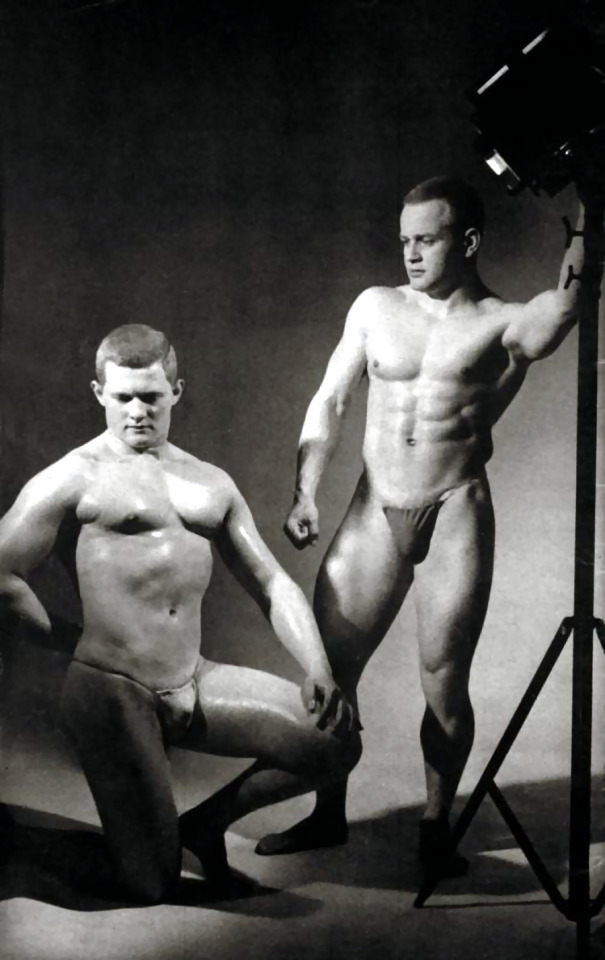
Dave Hawtin and Vic Haywood
38 notes
·
View notes
Text
Famous Dave's Coupon Code 2020: Get Famous Dave's Products at a fraction of the Cost
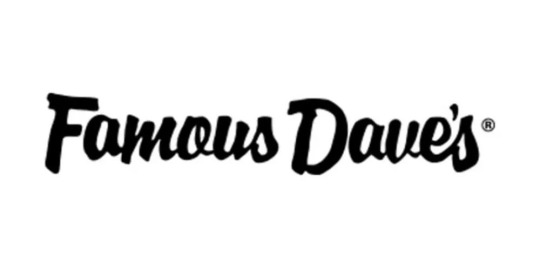
Dave's Famous BBQ is a world-renowned barbecue restaurant chain, with locations across the United States. The company is known for their delicious meats, which are smoked and cooked to perfection, as well as their wide variety of sides and sauces. For a limited time, you can use this coupon code to get Famous Dave's products at a fraction of the cost. So hurry and take advantage of this great deal while it lasts!
Famous Dave's is a popular barbecue restaurant chain in the United States. The company was founded in 1994 by Dave Anderson. The first Famous Dave's restaurant was opened in Haywood, Minnesota. As of 2018, the company has 137 restaurants in 33 states.
Famous Dave's is known for its ribs, chicken, and burgers. The restaurant also offers a wide variety of side dishes, including baked beans, coleslaw, and cornbread.
If you're looking for a Famous Dave's coupon code, you've come to the right place. We've compiled a list of all the best Famous Dave's coupons, deals, and discounts for you.
Here are some of the best Famous Dave's coupons, deals, and discounts:
Get a free appetizer when you sign up for Famous Dave's email list
Get a free entree when you purchase an entree and two drinks
Get 10% off your purchase when you use the Famous Dave's promo code "SAVE10"
Get $5 off your purchase when you use the Famous Dave's promo code "SAVE5"
Get a free appetizer when you show your military ID
So what are you waiting for? Use one of these Famous Dave's coupons, deals, or discounts and save big on your next purchase!
0 notes